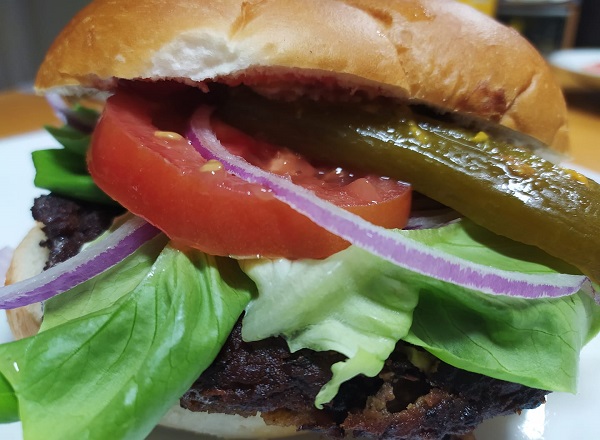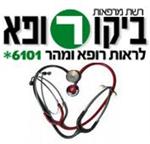Reading Time: 6 minutesWhat are Israeli Children Eating?
What are we feeding our children? What is in the convenience meals our children are eating? Do processed foods have any nutritional value? Why are so may children being diagnosed with ADHD? These were some of the issues that were addressed on Thursday, 13th November, 2014 in a consumer report on Israel Channel 2, presented by Micky Chaimowitz. This article is based on that program.

First, some background information: We often see a list of numbers with an “E” prefix on the labeling and for the most part we have no idea what they really are.
What are the E Additives?
E-numbers are simply a systematic way of identifying different food additives. Before a food additive is given an ‘E’ number it must first be cleared by the European Food Safety Authority (EFSA). This shows that it can be used safely in foods. An ‘E’ number is only given to an additive that has passed all the safety checks.
The E additives are divided into 7 categories
- E-100’s are colors, for example Tartrazine a.k.a E102, C.I. 19140, FD&C Yellow 5, Acid Yellow 23, Food Yellow 4, and Trisodium 1–4–5-pyrazolone-3-carboxylate.
- E-200’s are preservatives, for example E210 or Benzoic Acid: a.k.a flowers of benzoin, phenlycarboxylic acid, carboxybenzene, benzene carboxylic acid. Benzoic acid is added to alcoholic beverages, baked goods, cheeses, gum, condiments, frozen dairy, relishes, soft sweets, cordials and sugar substitutes. Can cause asthma and is also reputed to cause neurological disorders and also shown to provoke hyperactivity in children.
- E-300’s are anti-oxidants, for example E301 Sodium Ascorbate used in processed meats, sausages and baby foods.Helps to prevent oxidation reactions that can discolor foods.
- E-400’s are sweeteners and stabilizers. Used to replace sugars, for example E420 or Sorbitol which is used in sweets, ice cream, cakes, chocolates and some artificially sweetened drinks.
- E-500’s – For example E511 Magnesium Chloride used as a firming agent it complexes with pectins in vegetables to retain and firm structure during heat processing.
- E-600’s – For example E622 is a.k.a Monopotassium glutamate which is used as a flavor enhancer and salt substitute.
- E-900’s – E-1,500’s – For example E1404 or Oxidised Starch used as a thickening agent and emulsifier and is used in ice cream, pizza, battered fish and salad.
What are Israeli children eating?
- 50% of Israeli children eat processed foods (junk food) at least once a day
- Sugar is in almost everything our children are eating
- Salt is in almost everything our children are eating
Also,
- Children are likely to live 10 years less than us.
- The number of children with Juvenile Diabetes is on the increase
- Processed food have high caloric values and low nutritious values
Have we lost control?
We are responsible for what our children eat. Are we, the working parents, feeding our children foods that are convenient for us? Do you ever read the label before you purchase a processed food item for your child?
Now let us look at some specific food items…
Sugar
Sugar is an addictive substances and it affects the dopamine levels in the brain in the same way that drugs like cocaine, heroine and marijuana do.
In Bread:- The whiter the flour the more appealing the finished products looks. As flour is a carbohydrate or a form of sugar, the whiter the flour the more sugar content. Sugar speeds up the rising process, it gives a nice color to the finished product and it shortens the baking time – all beneficial to the manufacturers as they save time and money.
How much sugar is actually in our food?
Did you know that there are approximately:
- 5 teaspoons of sugar in a bread roll
- 3 teaspoons of sugar in a slice of bread (the standard loaf – “lechem achid”)
- 5 teaspoons in a ma’adan and 75% of Israeli children eat 1 ma’adan a day (a dairy based treat, like a chocolate pudding or flavored yoghurt)
- 8 teaspoons in 200ml of Choco lite
- 24 teaspoons in a bottle of Choco lite
- 7 teaspoons in 330ml of Cola
- 6 teaspoons in tea beverages
- 8 teaspoons in fruit drinks
- 2 teaspoons in flavored waters
Did you know that there is also sugar in mayonnaise, pastrami, pickled cucumbers, tuna salad, ready-made schnitzel, orange juice and ready-made salads? Until age 18, the average child has consumed 60,000 teaspoons of sugar in his/her lifetime.
Large amounts of sugar in our diet lead to illnesses like asthma, high blood pressure, weight gain, heart disease and of course diabetes. Israel is seeing more and more cases of Juvenile Diabetes and it is estimated that 1/3 of children will have adult diabetes by the time they are 40 years old.
Hatifim – Snack Foods
81% of Israeli children are eating at least one hatif a day. Some are eating as many as 3. Some are salty snacks like crisps, bagela etc and others are sweet snacks like chocolate and ice creams.
In the program we saw the results of oil extraction from a variety of snacks like crisps etc.
- 16ml of oil from a small, individual pack – 60-80 grams
- 70ml of oil in a large pack – 200 grams
Schnitzel
Advertised as 100% chicken, what ingredients are in the ready made schnitzel we are buying from the supermarket?
53% chicken, 47% coating/batter and crumbs, Sugar, Phosphates, Glutamates and a selection of E additives.
The manufacture was asked why there was sugar in the schnitzel and their response was “Everyone has their own recipe..”
A food lab took all the ingredients listed on a package of ready made schnitzel; chicken, water (used to add bulk), crumbs, starch, oil, sugar, salt, 5 different E additives, paprika and turmeric. They blended the ingredients in a food processor and then went on to explain, that this unappetizing mix is then coated, fried and frozen. When we bring it home we fry it again or heat it in the microwave.
It was pointed out that at this stage we know that phosphates cause muscle cramps, neurological problems and even osteoporosis.
A child commented: “I love my mother’s schnitzel the most, she buys them from the supermarket and they are all different shapes”
What is the average Israeli child eating?
Breakfast
Cornflakes or cereal – milk and sugar added, white bread. They are drinking choco, juice, coffee and some are even drinking cola. In fact 72% of children are drinking liquid that is not plain water.
10 a.m. snack
A sandwich, a pita or roll with an omelette, yellow cheese, cottage cheese, snack bars, humous and of course the favorite chocolate spread.
Lunch time
Children are coming home to an empty house and are having to prepare a quick meal on their own and it usually heated in the microwave. They are eating ready made schnitzel, chips, schnitzel tiraz (corn), sausages, couscous, rice pasta and large amounts of ketchup.
5:00 p.m.
12 friends at a class party ate Bamba, Oreos, Bagela, Doritos, pizza and cold drinks. They consumed 8 large packets of hatifim (salty snacks), 3 pizzas and 48 cups of cold drink. This food combination contained 15 teaspoons of salt, 500ml of oil. Each child had an average of 4 cups of cold drink containing a whopping 30 teaspoons of sugar. Out of 35 countries, Israel has the highest annual consumption of cold drinks.
Dinner
Mostly not a proper sit-down meal and generally eaten in front of the TV or the computer.
What are our children eating at school?
Parents are responsible for what their children eat at home, but what about the 300,000 Israeli children who are fed at school and at after school programs? The school meals are supposed to be supervised by the Department of Education – Misrad HaChinuch and regulated by Misrad HaBriyut – Ministry of Health. The criteria set our by Misrad HaChinuch state that no processed or fried foods are to be served in the school framework.
What is on the school menu?
Schnitzel, chicken, sausages, meat balls, rice, beans, pasta and lots of ketchup.
Chef Ran Shmueli was asked to taste some of the meals our kids are being served at school.
- First meal; dry rice, chicken and canned green beans – his comment “the beans were fresh once – before they were canned”
- Second meal: Sausages – he was not prepared to put them in his mouth
- Third meal: Schnitzelonim – he commented that the batter has a strong chemical taste, there was also canned corn and dry pasta.
- Fourth meal: Meat balls – he spat them out and commented that he could not be sure that they were actually meat.
School meals, in Israel, are prepared by catering companies who submit tenders. Logically, the company that tenders the best price will get the catering contract. A dietician is supposed to supervise the preparation of the school meals according to Misrad HaBriyut’s regulations. If a catering company is found to be contravening Misrad HaBriyut’s regulations they canned be fined up to 6,000 shekels. But, is any of this happening? The current budget for a school meal is 11.5 shekels.
In Italy children are given organic fruit and vegetables. In Japan, their meals include tofu, vegetables and rice. France spends twice as much on a school meal than Israel does. The USA (junk-food capital) has worked hard to improve the quality of school meals. In New York children are given whole wheat bread, whole grain rice, an unlimited salad bar and fresh fruit
What should we as parents, be doing?
Our children’s food, nutrition and health is in our hands. We need to be disciplined about what we give them to eat. We must not compromise and give into their food demands and we must not bribe them with food. We need to plan our meals in the same way we plan other aspects of our lives.
We are creating their illnesses by the food we are giving them. We know the effects of alcohol, drugs and smoking and we would never encourage them to use them but we do not think enough about the effects of feeding them processed, nutrient lacking, fast and junk-food.
According to a report by the Organization for Economic Cooperation and Development (OECD), Israel is the world’s top per-capita consumer of sugar. The report states that Israelis take in an average of 170 grams of sugar per person per day…http://www.ynetnews.com/articles/0,7340,L-4879473,00.html
 Bikur Rofeh is a network of emergency medical services that are available to the public on a 24/7 basis. There are 30 branches countrywide. Included in their service are doctor’s home visits.
Bikur Rofeh is a network of emergency medical services that are available to the public on a 24/7 basis. There are 30 branches countrywide. Included in their service are doctor’s home visits. 





